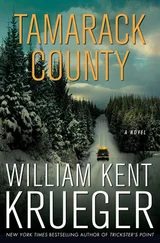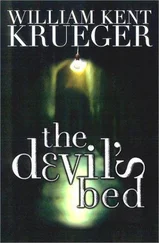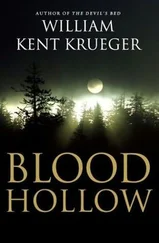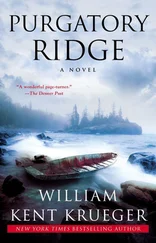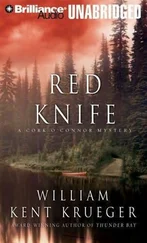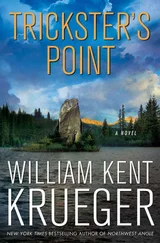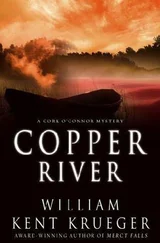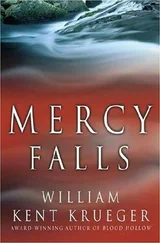William Krueger - Ordinary Grace
Здесь есть возможность читать онлайн «William Krueger - Ordinary Grace» весь текст электронной книги совершенно бесплатно (целиком полную версию без сокращений). В некоторых случаях можно слушать аудио, скачать через торрент в формате fb2 и присутствует краткое содержание. Жанр: Триллер, на английском языке. Описание произведения, (предисловие) а так же отзывы посетителей доступны на портале библиотеки ЛибКат.
- Название:Ordinary Grace
- Автор:
- Жанр:
- Год:неизвестен
- ISBN:нет данных
- Рейтинг книги:4 / 5. Голосов: 1
-
Избранное:Добавить в избранное
- Отзывы:
-
Ваша оценка:
- 80
- 1
- 2
- 3
- 4
- 5
Ordinary Grace: краткое содержание, описание и аннотация
Предлагаем к чтению аннотацию, описание, краткое содержание или предисловие (зависит от того, что написал сам автор книги «Ordinary Grace»). Если вы не нашли необходимую информацию о книге — напишите в комментариях, мы постараемся отыскать её.
Ordinary Grace — читать онлайн бесплатно полную книгу (весь текст) целиком
Ниже представлен текст книги, разбитый по страницам. Система сохранения места последней прочитанной страницы, позволяет с удобством читать онлайн бесплатно книгу «Ordinary Grace», без необходимости каждый раз заново искать на чём Вы остановились. Поставьте закладку, и сможете в любой момент перейти на страницу, на которой закончили чтение.
Интервал:
Закладка:
Doyle stood up. He walked to the cell and motioned Morris Engdahl to come to the bars. Engdahl drew his whole self onto the bench and pressed to the wall.
“That’s what I thought,” Doyle said.
The metal door opened and Officer Blake came out. My father followed. He supported Gus who was stumbling. Gus seemed drunker than Engdahl but there wasn’t a mark on him.
“You’re really letting him go?” Engdahl said. “That’s friggin’ unfair.”
“I called your father,” the officer said. “He told me a night in jail would do you good. Take it up with him.”
“Get the door, Frank,” my father said and then looked at the officer. “Thank you, Cleve. I appreciate this.”
“Keeps things around here simpler. But, Gus, you’ve got to watch yourself. The chief’s at the end of his rope with you.”
Gus grinned drunkenly. “He wantsa talk to me, tell him I’ll be happy to discuss it over a beer.”
I held the door and my father hauled Gus out. I looked back where Morris Engdahl sat on the hard bench. Now, forty years later, I realize that what I saw was a kid not all that much older than me. Thin and angry and blind and lost and shut up behind iron bars not for the first time or the last. I probably should have felt for him something other than I did which was hatred. I closed the door.
At the car Gus straightened up suddenly and turned to my father. “Thanks, Captain.”
“Get in the car.”
Gus said, “What about my motorcycle?”
“Where is it?”
“At Rosie’s.”
“You can get it tomorrow when you’re sober. Get in the car.”
Gus swayed a little. He looked up at the moon. His face was bloodless in the pale light. “Why does he do it, Captain?”
“Who?”
“God. Why does he take the sweet ones?”
“He takes us all in the end, Gus.”
“But a kid?”
“Is that what the fight was about? Bobby Cole?”
“Engdahl called him a retard, Captain. Said he was better off dead. I couldn’t let it pass.” Gus shook his head in a bewildered way. “So how come, Captain?”
“I don’t know, Gus.”
“Isn’t that your job? Knowing the why of all this crap?” Gus seemed disappointed. Then he said, “Dead. What’s that mean?”
Jake spoke up. “It means he won’t have to w-w-worry about everybody making f-f-f-fun of him.”
Gus eyed Jake and blinked. “Maybe you’re right. Maybe that’s the reason. What do you think, Captain?”
“Maybe.”
Gus nodded as if that had satisfied him. He bent toward the open car door to get into the backseat but instead stood there making awful retching sounds.
“Ah, Gus. All over the upholstery,” my father said.
Gus straightened up and pulled his shirttail from his pants and wiped his mouth. “Sorry, Captain. Didn’t see it coming.”
“Get in front,” my father said. He turned to me. “Frank, you and Jake are going to have to walk home. Do you have a problem with that?”
“No, sir. We’ll be fine. But could we have the tire iron from the trunk? For protection?”
New Bremen wasn’t at all the kind of town where you’d need a tire iron for protection but I nodded toward Jake, whose face had gone a little white at the prospect of walking home in all that dark, and my father understood. He popped the trunk and handed me the iron. “Don’t dawdle,” he said.
He climbed into the driver’s side. “You have to puke again, Gus, puke out the window. Understand?”
“I read you loud and clear, Captain.” He smiled gamely and lifted a hand to us as my father drove away.
Under the moon we stood on the empty square. The city jail was the only lit building we could see. On the opposite side of the green the courthouse clock bonged four times.
“It’ll be light in an hour,” I said.
“I don’t want to walk home,” Jake said. “I’m tired.”
“Then stay here.”
I started away. After a moment Jake came too.
We didn’t go home. Not directly. At Sandstone Street I turned off Main.
Jake said, “Where are you going?”
“You’ll see.”
“I want to go home.”
“Fine. Go home.”
“I don’t want to go home alone.”
“Then come on. You’ll like this, I swear.”
“Like what?”
“You’ll see.”
A block off Main on the corner of Walnut was a bar with a sign over the door. Rosie’s. A ’53 Indian Chief with a sidecar was in the lot. Gus’s motorcycle. Only one automobile was still parked there. A black Deuce Coupe with fire painted along its sides. I approached that beauty and spent a moment running my hand admiringly over the slope of the front wheel well where a silver snake of moonlight shot along the black enamel. Then I set myself and swung the tire iron and smashed the left headlight.
“What are you doing?” Jake cried.
I walked to the other headlight and once again the sound of shattering glass broke the stillness of the night.
“Here,” I said and offered the tire iron to my brother. “The rear lights are all yours.”
“No,” he said.
“This guy called you a retard. You and Bobby Cole. And he called Ariel a harelip and Dad a pussy. You don’t want to break something on his car?”
“No.” He looked at me then at the tire iron then at the car. “Well, maybe.”
I handed that magic wand of revenge to Jake. He walked to the back of Morris Engdahl’s precious set of wheels. He glanced at me once for reassurance then swung. He missed and banged metal and the tire iron bounced out of his hands.
“Jeez,” I said. “What a spaz.”
“Let me try again.”
I picked up the tire iron and handed it to him. This time he did the deed and danced back from the spray of red glass. “Can I do the other one?” he pleaded.
When he’d finished we stood back and admired our work until we heard the screen door of the house across the street squeak open and a guy shout, “Hey, what’s going on over there?”
We tore down Sandstone back to Main and down Main toward Tyler. We didn’t stop until we hit the Flats.
Jake bent over and held his ribs. “I got a stitch in my side,” he gasped.
I was breathing hard too. I put my arm around my brother. “You were great back there. A regular Mickey Mantle.”
“Think we’ll get in trouble?”
“Who cares? Didn’t that feel good?”
“Yeah,” Jake said. “It felt real good.”
The Packard was parked in the church lot across the street from our house. The light over the side door was on and I figured Dad was still inside putting Gus to bed. I set the tire iron on the Packard’s hood and we walked to the door, which opened onto a set of stairs that led to the church basement where Gus had a room next to the boiler.
Gus wasn’t related to us by blood but in a strange way he was family. He’d fought beside my father in the Second World War, an experience, my father contended, that made them closer than brothers. They stayed in touch and whenever Dad updated us on his old friend it was usually to report another in a long litany of missteps. Then one day just after we’d moved to New Bremen, Gus had shown up at our doorstep, a little drunk and out of work and with everything he owned stuffed in a pack in the sidecar of his motorcycle. My father had taken him in, given him a place to live, found him work, and Gus had been with us ever since. He was a source of great disagreement between my parents but only one of many. Jake and I liked him immensely. Maybe it was because he talked to us as if we weren’t just kids. Or because he didn’t have much and didn’t seem to want more and didn’t appear to be bothered by his questionable circumstances. Or because on occasion he drank to excess and got himself into trouble from which my father would predictably extricate him, which made him seem more like an errant older brother than an adult.
Читать дальшеИнтервал:
Закладка:
Похожие книги на «Ordinary Grace»
Представляем Вашему вниманию похожие книги на «Ordinary Grace» списком для выбора. Мы отобрали схожую по названию и смыслу литературу в надежде предоставить читателям больше вариантов отыскать новые, интересные, ещё непрочитанные произведения.
Обсуждение, отзывы о книге «Ordinary Grace» и просто собственные мнения читателей. Оставьте ваши комментарии, напишите, что Вы думаете о произведении, его смысле или главных героях. Укажите что конкретно понравилось, а что нет, и почему Вы так считаете.


